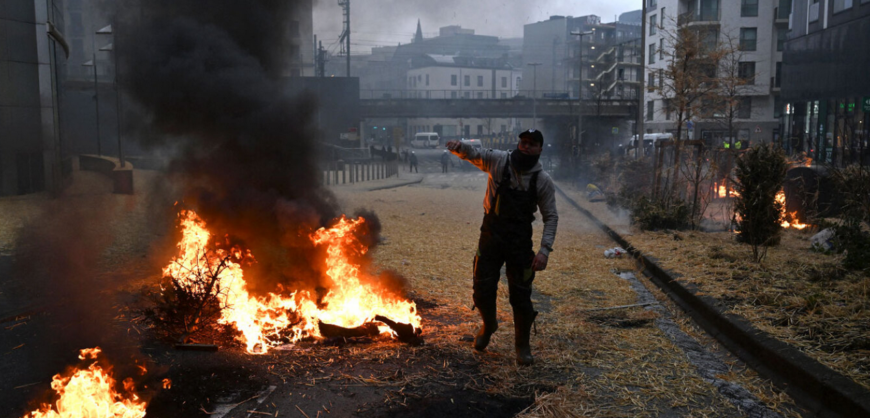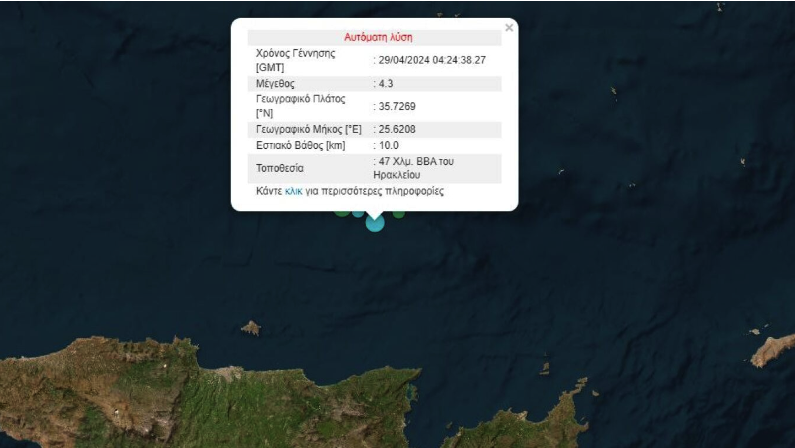Related Stories
There are clashes between farmers and police at this time in Brussels, where today the Agriculture Ministers of the 27 EU countries are meeting.
More than 900 tractors are lined up in the city center and the main road, Rue de la Loi, is blocked.
Under the sound of music and chants, farmers set up roadblocks with manure and burned tires.
Police earlier attempted to prevent the passage of farmers with at least three water cannon vehicles; however, they broke through the barriers with their tractors and approached the building where the Agriculture Ministers will meet.
With a banner that reads “Milk the cow, not the farmer,” farmers call on ministers to “be reasonable and spend a day with them in the fields, with horses or animals, to see that it’s not so easy due to the conditions.”
Ain’t no party like a CAP party 📢🚨#Monday #Brussels pic.twitter.com/unpddWRhGs
— Robert O’M (@ipcress) February 26, 2024
As it became known, at 15:30 Greek time, a delegation of young farmers will be received by the Belgian presidency of the Council of Europe and the European Commission after the meeting of the Agriculture Ministers of the 27 EU countries.
Reuters: Argentina markets double down on Milei as investors “start to believe” – Analysis
The demands
Less than a month after the “historic,” as it was described, rural mobilization in the Belgian capital on February 1st, when over 1,300 tractors flooded the streets of the European neighborhood, today farmers return to express their anger at the lack of response from European authorities. As reported by the Belgian newspaper Le Soir, today’s demonstration involves agricultural unions from Wallonia and Flanders (southern and northern parts of Belgium), as well as farmers from France, Italy, Spain, Germany, and Luxembourg.
#Farmers are back on the streets of #Brussels this morning for the #Agri council. #FoodSecurity #FarmingIncome #GreenDeal pic.twitter.com/uiu26XFF1v
— Micheal O Conchuir (@moconchuir) February 26, 2024
Among the main demands of the farmers, which, as they say, have not yet been heard, are: fair incomes, reduction of administrative burdens, termination of free trade agreements, and an increase in the budget for the Common Agricultural Policy (CAP).
#FarmerProtest2024 just now in #Brussels pic.twitter.com/nHxkX902yi
— André Paula Santos (@andrepsantos192) February 26, 2024




































